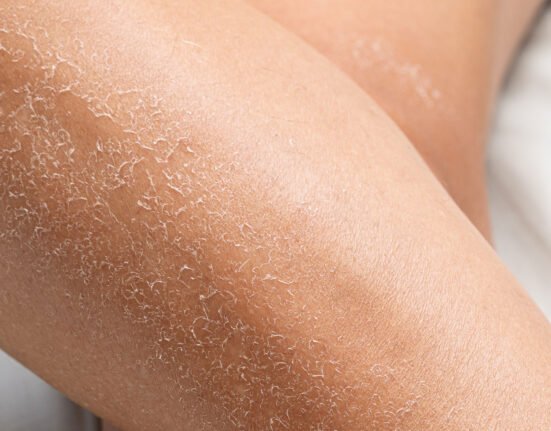If you’re living with psoriasis, you probably know how hard it can be to get a good night’s sleep. Itchy, burning, or even bleeding skin plaques often make it difficult to relax and fall asleep.
Nearly 85% of people with psoriasis experience sleep problems. And to make matters worse, lack of sleep can trigger more flare-ups.
The less you sleep, the worse your symptoms get, creating a frustrating cycle that’s hard to break.
But don’t worry. It’s not hopeless. With a few simple strategies, restful sleep is still within reach.
Why Does Psoriasis Disrupt Sleep?
Psoriasis causes your skin cells to regenerate faster than they usually do. As a result, the skin becomes thick, scaly, itchy, and sometimes painful.
Unfortunately, those uncomfortable sensations tend to feel even more intense at night, when your body is in need of rest.
The problem is that poor sleep increases stress and weakens the immune system, two primary triggers for psoriasis flare-ups.
So, you need sleep to heal, but your psoriasis keeps you awake. Tricky situation, right?
Tips to Sleep Better During a Psoriasis Flare-Up

1. Create a Consistent Sleep Routine
Try to go to bed and wake up at the same time every day. Your body thrives on routine.
Wind down with calming activities, such as reading, taking a warm bath, or practising gentle meditation.
Avoid screens (phones, laptops, TVs) at least one hour before bed, as the blue light can disrupt your sleep hormones.
2. Moisturize Before Bed
Dry, itchy skin can make it almost impossible to get a good night’s sleep. Use a psoriasis-friendly moisturiser, especially one containing ingredients such as coal tar, salicylic acid, or topical corticosteroids.
Apply it regularly before bed to help soothe your skin and promote more comfortable sleep.
3. Exercise (But Not Right Before Bed)
Exercise isn’t just great for your overall health. It can also help improve your sleep quality.
Try walking, swimming, or yoga for about 30 minutes a day.
Just don’t exercise too close to bedtime; aim to finish your workout at least 3 hours before you go to sleep to avoid feeling overly alert.
4. Get Some Sunlight Exposure
Natural sunlight helps regulate your body’s sleep-wake cycle and boosts melatonin (the sleep hormone).
Spend about 10–15 minutes outdoors in the morning, if possible.
Don’t forget sunscreen with at least SPF 30. Your skin still needs protection.
5. Watch What You Eat, Especially Before Bed
Certain foods can increase inflammation and worsen psoriasis.
Avoid fried foods, sugary treats, saturated fats, and heavily processed snacks.
Instead, focus on whole foods like leafy greens, fresh fruits, fatty fish (like salmon or sardines), nuts, and seeds.
To prevent psoriasis from disrupting your sleep, prioritise your skin care and adopt a healthy lifestyle.
Getting enough sleep isn’t just about feeling refreshed in the morning. It also helps your body fight inflammation and manage symptoms better.
If your symptoms continue to interfere with sleep or worsen, don’t hesitate to consult a doctor or dermatologist for more targeted support.
References
Healthline. Accessed in 2025. How to Get a Better Night’s Sleep with Psoriasis.
Medical News Today. Accessed in 2025. What to know about the link between psoriasis and sleep.
WebMD. Accessed in 2025. Psoriasis: Tips to Help You Sleep.








Leave feedback about this